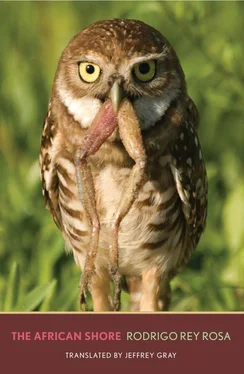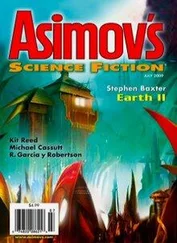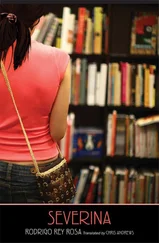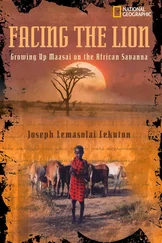“Uh-huh. And what’s that?” he asked.
It wasn’t a question likely to leave Ulysses indifferent. He started to pace back and forth across the room. If, as their old philosophy professor used to argue, marriage and prostitution were two sides of the coin of respectable society, it was logical that a polygamous society would engender a different kind of prostitute. Which type was less sad? he asked.
“The question of legality aside,” he continued, “if you’re getting services like this for a certain amount of money, you have to ask to what extent you can be unbiased. Lots of girls here prostitute themselves to build up a dowry, without which they can’t hope to get married. Later they marry and become respectable women. Put yourself in the place of a Moroccan girl. Suppose she’s pretty and she’s poor? What do you expect?”
“Balls, Ulysses. You’re getting sentimental,” said Victor. “Besides, the dowry thing here is the other way round. It’s the groom that has to pay.”
Ulysses stretched out on his back on the bed.
“Really? Anyway, this girl — Nadia — was sweet as can be.”
“You’re going to see her again?”
Ulysses sat up again.
“Probably not. We fly out tomorrow morning. And you,” he asked, “what are you going to do?”
“Stay here, what else? And wait. Can’t you see her before you go?”
“No, she’ll be sleeping. They start work at midnight and sleep all day. The night-time schedule keeps them out of circulation, so they don’t mingle with ‘decent’ folks in the daylight.”
“Well,” said Victor, “what did she do for you?”
Ulysses closed his eyes with a smile of pleasure.
“Everything I wanted, she knew.”
“Why don’t you give your passport to this guy who’s got a wife in Cali waiting for him, and you could stay here?”
Ulysses thought about it a moment and said:
“I would, I really would. If I didn’t have to work.”
He turned up Velázquez Street toward Boulevard Pasteur and the Faro Plaza, where there were only a few people — some shoeshine boys and photographers hanging around the Portuguese cannon. The metal blinds of the stores were shut. Some early swallows circled the tops of the oaks in the garden of the French consulate. Leaving his route to chance, he turned at Rue de la Liberté, so as to head back down to the Zoco de Fuera. Passing the Hotel Minzah, he stopped and looked into a shop window filled with dusty Berber daggers, bracelets, and necklaces. Then he kept going. He crossed the cement plaza of the old Zoco and entered the Medina by the south gate. He turned down toward the Zoco Chico by Plateros Street, where there were more people. A vendor poured water from a goat skin into zinc cups. The girls — some veiled, some not — shot curious glances. Just like the girls in Cali, he thought. In the middle of the rectangular plaza he stopped, and a slender, pale Moroccan with a week’s beard came up to ask him what he was looking for. Without answering, he looked around him, then sat down at a little table on the café terrace. It was on the upper part of the plaza, where the sun hit.
From the back of the café came wisps of Egyptian music and the noise of a television. A mix of odors floated out too: oranges, mint, burned grease, and, for an instant, the smell of kif. He breathed deeply, feeling the desire to smoke. He raised his hand to call the waiter and ordered a Coca-Cola.
In front of him, Moroccan heads passed by, then seemed to multiply. The mosques would be emptying out, he thought. Eyes that reminded him of other eyes, but in different faces. A familiar nose beneath an unexpected forehead, too narrow — features brought together by chance as in a book of sketches by a prolific and careless artist.
After a while, a poor-looking Moroccan walked up to the terrace and sat at the next table. He turned to look at him and said in Spanish:
“Excuse me, don’t we know each other?”
“I don’t think so.”
“Spanish?”
“No,” he answered, turning back to look at the plaza.
“You look like a friend of mine.”
From where he sat, he could still see the Moroccan who had approached him in the plaza; he was leaning against a wooden case where he had spread out contraband packs of cigarettes. Before the waiter arrived, he watched the man make a deal with a long-haired tourist brought to him by a street boy. The man exchanged a few words with his customer in the middle of the plaza and led him toward a narrow intersection where they made the transaction.
He said in a lowered voice to the Muslim:
“That guy, the one with the cigarettes, what’s he selling?”
“Drugs.”
“What kind of drugs?”
“All kinds. Hashish, cocaine, pills. Everything.”
“Kif?”
The other laughed.
“I doubt if he sells kif. Only old men smoke kif. Where are you from?”
“Colombia.”
“Ah,” said the Muslim, “the Colombian mafia.”
“That’s right.”
The other put out his hand, which he couldn’t refuse.
“Glad to meet you, my friend.” A vigorous handshake. “My name is Rashid.” A few seconds later: “Tourist?”
“Not exactly.”
“Business?”
“Something like that.”
“How long are you staying in Tangier?”
“I don’t know.”
“All right. You need something, anything, no problem — I’m always here.”
“I’d like to get some kif,” he said.
“Yes?”
“Is it dangerous?”
“Dangerous? Kif? Bah. I don’t smoke. You have to cut it, you know. But I can get you some. How much do you want?”
“Fifty dirhams?”
“No problem. Give me fifty dirhams.”
“What?”
“You want kif, give me fifty dirhams.”
“And when will I get it?”
“Tomorrow. At this time.”
They stayed a little while longer in silence until he stood up. He laid a fifty-dirham bill on the table in front of Rashid and said:
“All right. I’ll see you tomorrow.”
Now the little shops were open. Tourist bazaars, leather stores, tiny jewelry shops that gleamed with golden objects. The day’s lost now, he thought. Before leaving the Medina, he decided to amuse himself walking through the little streets, dark like tunnels, that rose and fell between dwarf houses and businesses spilling neon light, where odors and children alike moved freely from house to house. He went down a flight of urinous stairs that flanked the city wall and came out at last onto a wide straight street, the old Rue d’Italie, which sloped between two rows of trees and shops. Heaps of wool, towers of bowls, plastic flowers, straw mats, barber posts, bunches of shoes that hung like fruit from awnings or small balconies. A theater from which he could hear the rumble of a war movie. The smell of mint tea and tobacco floating on the café terraces. He stopped in front of an herbalist’s display window. He went inside and saw porcupine and snake skins hanging from the walls, and a falcon — eye sockets vacant — grotesquely stuffed and mounted.
“What’s it for?”
“To make fumes for healing,” said the herbalist, who seemed to be a bit of a charlatan.
He left and continued walking uphill toward the Zoco de Fuera, along the fence that enclosed the Mendubía gardens, where with a huge ruckus thousands of swallows swirled above in the treetops.
He practically leapt down the stairs to Rue d’Italie — half-elated, half-outraged at the news from the honorary consul, who had told him it would be several weeks before he got his passport.
The Colombian consulate was nothing but a little apartment on top of the fortified arch of the Casbah gate. A small library, doubling as a waiting room, offered a view of the port, the bay, and the luminous Medina. From the consul’s office, which gave onto a little elevated garden with roman cypresses and rosebushes, one could see a large part of the new city, the camel-colored hills that surrounded it, and, much farther off, the foothills of the Rif. The consul had never been to Colombia, he said, and had no intention of going. He was a North American shipwrecked here by chance. This no longer mattered to him, he said, although the city was not even a shadow of what it had been when he first came. According to him, the mental evolution of the Moroccans was going in reverse. “Bad stock,” he said. “The French knew it very well. They’re good for only one thing,” and he covered his mouth with one hand to emphasize the indiscretion.
Читать дальше












